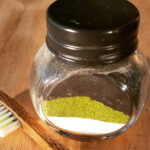Our body is an ecosystem, teeming with trillions of microorganisms that play a vital role in maintaining our health.
These microorganisms, collectively known as the microbiome, inhabit our gut, skin, mouth, and other areas of the body. They help break down our food, regulate our immune system, and even produce neurotransmitters that affect our mood.
It’s essential to keep our microbiome healthy, diverse and happy! One of the best ways to do this is through our diet. The food we eat can directly impact the composition and function of our microbiome, and the more diverse our diet, the more diverse our microbiome will be.
One way to feed our microbiome is by consuming prebiotic foods. Prebiotics are types of fibre that can’t be digested by the human body but serve as food for our gut bacteria. Foods high in prebiotic fibres include chicory root, garlic, onions, asparagus, bananas, and oats.
Another way to promote a healthy microbiome is by consuming probiotic foods. Probiotics are live microorganisms that provide health benefits when consumed. They can be found in fermented foods like yoghurt, kefir, kimchi, sauerkraut, and miso. When consumed regularly, probiotic-rich foods can help improve digestion, boost the immune system, and even reduce inflammation.
In addition to prebiotics and probiotics, a diet rich in whole, plant-based foods can also support a healthy microbiome. Fruits, vegetables, legumes, and whole grains are rich in fibre, vitamins, and minerals that our microbiome needs to thrive. These foods also contain antioxidants that can help reduce inflammation and protect our gut lining.
On the other hand, a diet high in processed foods, added sugars, and unhealthy fats could harm our microbiome. These types of foods can cause inflammation, disrupt the balance of bacteria in our gut, and even lead to chronic diseases like obesity, type 2 diabetes, and heart disease.
It’s important to note that everyone’s microbiome is unique, and what works for one person may not work for another. That’s why it’s essential to listen to our bodies and pay attention to how we feel after eating certain foods. Keeping a food journal can be a helpful tool for tracking what we eat and how it affects our bodies.
Remember, our microbiome is a community and, by nourishing it, we can thrive together!
Paula Rey is a holistic health coach, hypnobirthing childbirth educator, cacao ceremony facilitator and embodiment practitioner.
Facebook/Instagram @delaselva.holistic
+351 933 821 554













